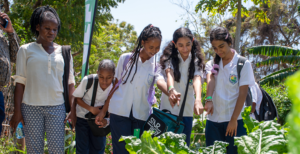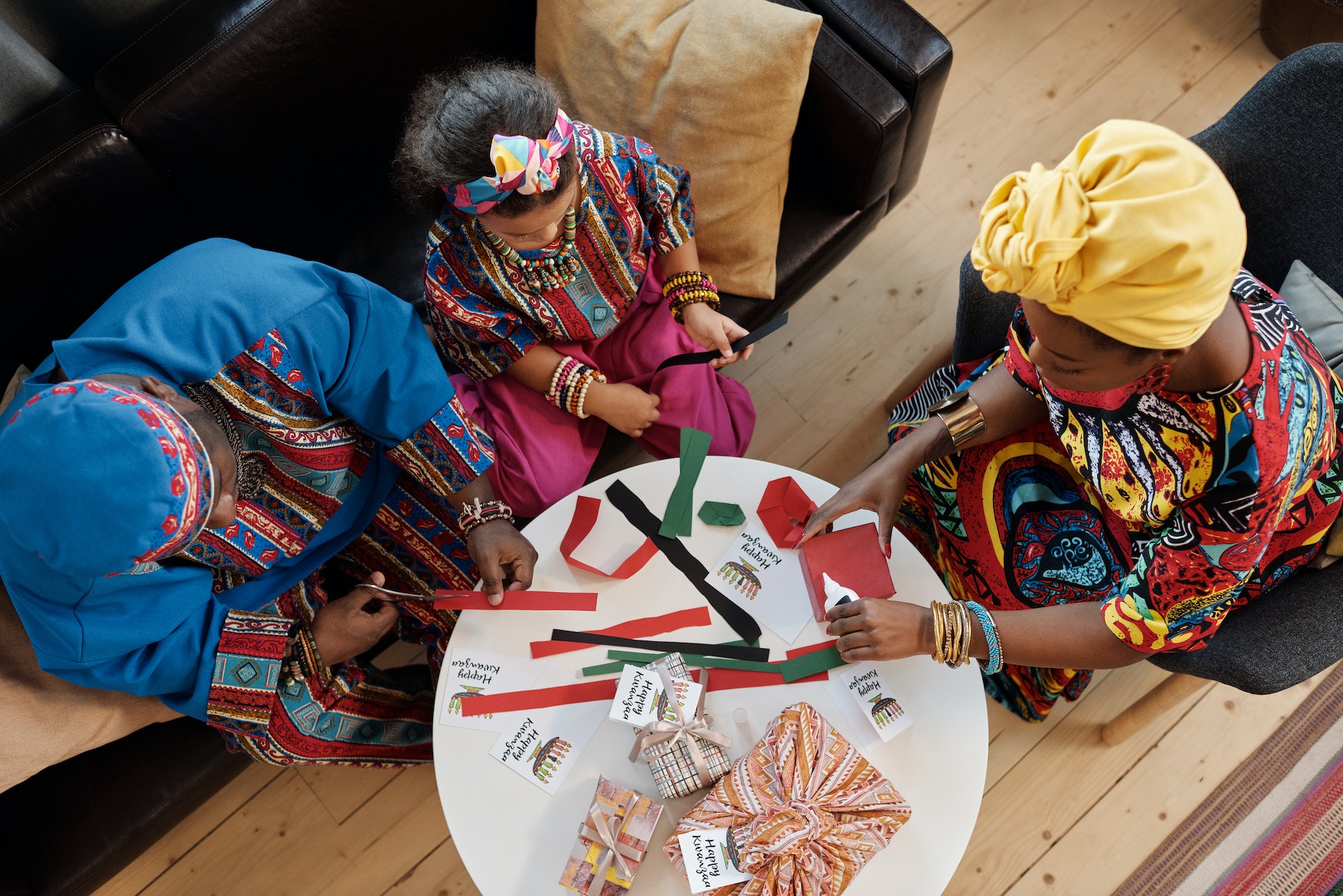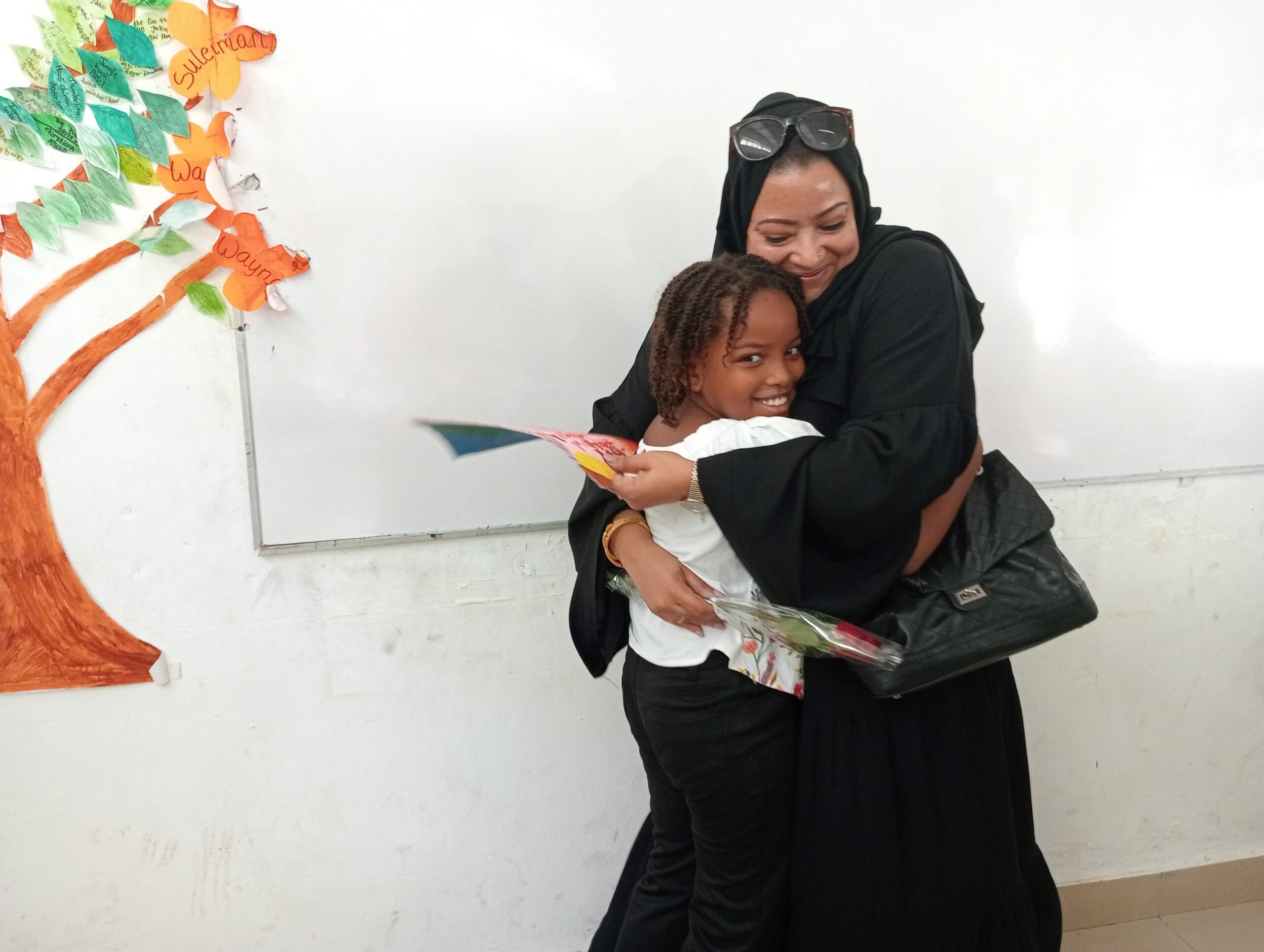Coast Academy School Students Explore Climate-Smart Agriculture at ASK Show 2025 Mombasa

The students from Coast Academy in Mombasa had an extraordinary educational experience at the ASK (Agricultural Society of Kenya) Showground for the highly anticipated Mombasa ASK Show 2025. This immersive field trip aligned perfectly with Coast Academy’s IGCSE curriculum, offering hands-on learning about climate-smart agriculture, sustainable trade practices, and Kenya’s economic growth initiatives.
As one of Mombasa’s premier international schools, Coast Academy is committed to providing students with world-class education that extends beyond traditional classroom walls. This visit to the ASK Show 2025 exemplified the school’s dedication to experiential learning and preparing students for real-world challenges, particularly in the areas of climate change and sustainable development.
The Mombasa ASK Show 2025 served as an ideal venue for Coast Academy students to explore innovative approaches to agriculture and trade in the face of climate change. The event showcased how Kenya is embracing climate-smart agriculture to ensure food security while promoting economic growth.
Students were introduced to revolutionary farming practices designed to combat climate change. They learned about:
- Drought-resistant crops and farming techniques that help farmers adapt to changing weather patterns.
- Water conservation methods that are crucial for coastal regions like Mombasa.
- Sustainable livestock management practices that reduce environmental impact.
- Modern agricultural technology, including mechanized equipment and tractors that increase efficiency while reducing carbon footprints.

This hands-on exposure to climate-smart agriculture gave our students a practical context for their environmental science and geography lessons.
The ASK Show 2025 wasn’t just about farming—it highlighted the entire value chain of climate-smart trade. The students explored:
- Agribusiness opportunities that promote sustainable economic growth in Kenya.
- Export-ready agricultural products that strengthen international trade.
- Green technology innovations driving Kenya’s economic transformation.
- Entrepreneurship in sustainable sectors that create jobs while protecting the environment.
Coast Academy students engaged with cutting-edge agricultural machinery and equipment, understanding how technology is revolutionizing farming in Kenya. From tractors to irrigation systems, they witnessed firsthand the tools driving climate-smart agriculture forward. The livestock section was particularly popular among the students. They observed various animal breeds, learned about sustainable animal husbandry practices, and even enjoyed camel rides—a unique experience that connected them with traditional Kenyan culture while understanding the role of livestock in climate-resilient farming systems.

Students from Coast Academy International School interacted with professionals from various sectors, including law enforcement, agricultural sciences, and environmental conservation. These interactions helped broaden their perspective on career opportunities that contribute to Kenya’s sustainable economic growth.

This field trip perfectly complemented Coast Academy’s IGCSE curriculum, bringing subjects like Biology, Geography, Environmental Management, and Economics to life. Students could connect classroom theory with real-world applications, particularly understanding:
- The science behind climate change and agricultural adaptation
- Economic principles of trade and market development
- Geographic factors affecting agriculture in coastal Kenya
- Social responsibility and sustainable development goals
At The Coast Academy, education goes beyond textbooks. This visit to the ASK Show 2025 Mombasa reinforced the school’s commitment to developing globally-minded, environmentally-conscious students who understand the importance of climate-smart solutions and sustainable economic growth.
The experience fostered essential 21st-century skills, including:
- Critical thinking about climate change solutions
- Collaborative learning through group activities
- Communication skills through interactions with industry professionals
- Global citizenship awareness and environmental stewardship
The Coast Academy continues to set the standard for international education in Mombasa by providing students with opportunities to engage with pressing global issues like climate change, food security, and sustainable development. The ASK Show 2025 visit exemplified how the school prepares students not just for exams, but for meaningful contributions to society.
The lessons learned at the Mombasa ASK Show 2025 will resonate with Coast Academy students for years to come. Many expressed newfound interest in careers related to climate-smart agriculture, environmental science, sustainable business, and international trade—all critical sectors for Kenya’s future economic growth.
As climate change continues to shape our world, Coast Academy International School remains committed to educating students who will be equipped to develop and implement climate-smart solutions for tomorrow’s challenges.

About Coast Academy International School
Coast Academy is a leading international school in Mombasa offering IGCSE curriculum and world-class education. Located in Kenya’s vibrant coastal region, The Coast Academy combines academic excellence with experiential learning opportunities that prepare students for global citizenship and success in an interconnected world.
For more information about Coast Academy International School and our IGCSE programs, visit our campus in Mombasa or contact us today.
Read MoreHow the IGCSE Prepares Students for University and Life
When parents in Kenya consider their child’s educational future, they often focus on exam results. However, the IGCSE Kenya program offers something far more valuable: preparation for real life. Students graduating from a Cambridge high school in Mombasa don’t just earn qualifications; they develop life skills that transform their daily experiences long after graduation.
IGCSE offers independent research abilities. For example, Ahmed, a former student, thrived in his university coursework because IGCSE had taught him independent research skills. While classmates struggled with literature reviews and data analysis, he confidently navigated academic databases, evaluated source credibility, and applied complex information skills that directly transferred from his IGCSE essay experience.
Another benefit is that students who have gone through the IGCSE curriculum at Coast Academy use analytical skills learned through Economics and Mathematics. They can evaluate different financial options, consider multiple options, and make informed decisions. IGCSE training in breaking down complex problems into simple concepts helped them tackle everything from home purchases to career transitions.
Other advantages include:
Time Management: IGCSE coursework deadlines teach students to balance multiple responsibilities, a skill that transforms how they handle work-life balance as adults.
Confident Communication: Through presentations and group work, graduates learn to express ideas clearly in meetings, social situations, and family discussions.
Analytical Thinking: Students learn to evaluate information critically essential for making smart financial decisions, career choices, and even everyday purchases.
Cultural Sensitivity: Given the diversity in students from different cultures and nationalities, the international curriculum develops empathy and understanding that enhances personal relationships and professional networking.
Beyond University: Lifelong Impact
While IGCSE qualifications open university doors worldwide, the real transformation happens in daily life. Graduates approach challenges with confidence, communicate effectively in diverse settings, and adapt to changing circumstances with ease.
The program’s emphasis on practical application means students don’t just memorize facts, they learn to use knowledge creatively. Whether they’re starting a business, raising a family, or pursuing advanced studies, IGCSE graduates possess the skills and self-direction that lead to meaningful success.
For Kenyan families, choosing IGCSE isn’t just about education, it’s about giving your child tools that will enhance every aspect of their future life, from career advancement to personal relationships to social interactions.
Read More
A Guide to Cambridge CIE Curriculum for Kenyan Parents
As a parent in Kenya, choosing the right educational path for your child is one of the most important decisions you’ll make. The Cambridge CIE (Cambridge International) curriculum has emerged as a leading choice for families seeking world-class education that prepares children for global opportunities.
What Makes the Cambridge Curriculum Kenya Special?
The Cambridge curriculum is an internationally recognized teaching framework that prepares learners with relevant skills and knowledge for our ever-changing world. Unlike traditional systems, the Cambridge curriculum is designed to be student-centered, where learners are encouraged to take an active role in their learning.
This approach develops analytical thinking, problem-solving abilities, and creative skills that will serve your child throughout their academic journey and beyond. The curriculum is structured to build confidence and foster independent learning, ensuring students can adapt to diverse educational environments worldwide.
Growing Opportunities Across Kenya
The popularity of Cambridge schools in Kenya continues to grow, with institutions now available from Nairobi to the coast. For families exploring CIE education Mombasa options, Coast Academy is a Cambridge school that offers a comprehensive pathway from Kindergarten through Year 13, following the IGCSE framework. With emphasis on persistence and academic excellence, qualities that are very crucial in a child’s academic journey.
Why Choose Cambridge for Your Child?
The Cambridge International curriculum offers several compelling advantages:
Global Recognition: Cambridge qualifications are accepted by top universities worldwide, opening doors to international higher education opportunities.
Flexible Learning: The curriculum is flexible, challenging, and culturally sensitive, allowing students to explore subjects that match their interests and strengths.
Holistic Development: Beyond academics, the program emphasizes character building, cultural awareness, and practical life skills.
Future-Ready Skills: Students develop digital literacy, collaboration skills, and adaptability essential qualities for tomorrow’s workforce.
Making the Right Choice
When considering the Cambridge curriculum in Kenya, visit schools, speak with educators, and observe classroom environments. Look for institutions that balance academic excellence with extracurricular activities, ensuring your child receives comprehensive development.
The Cambridge CIE curriculum isn’t just about education; it’s about preparing your child to thrive in an interconnected world while maintaining their cultural identity and values.
The Ultimate Checklist for Kindergarten Readiness

Preparing a child for kindergarten is a crucial step in their educational journey. It is important to ensure that they are mentally, emotionally, and physically ready for this new chapter in their lives. This checklist will assist in preparing one’s child for kindergarten and encompasses various aspects that parents and educators should consider before enrolling a child in kindergarten.
 One of the key components of kindergarten readiness is social skills. Children should be able to interact with their peers, follow simple instructions, and communicate effectively with adults. Children need to develop these skills in order to succeed in a classroom setting.
One of the key components of kindergarten readiness is social skills. Children should be able to interact with their peers, follow simple instructions, and communicate effectively with adults. Children need to develop these skills in order to succeed in a classroom setting.
Interaction with peers is fundamental to developing social competence. Children who can engage positively with their classmates are more likely to build friendships and collaborate during group activities. These interactions help them learn important concepts such as sharing, taking turns, and resolving conflicts—skills that are vital within a classroom setting. When children feel comfortable interacting with their peers, they are better equipped to adapt to the dynamics of a school environment where cooperation is often required.
Following simple instructions is another essential aspect of readiness for kindergarten. The ability to listen attentively and comply with directions from teachers fosters an atmosphere conducive to learning. Children who demonstrate this capability can participate fully in classroom activities and routines, which enhances their overall educational experience. Additionally, effective communication with adults allows children to express their needs and emotions clearly, further facilitating positive relationships with caregivers and educators.
 Another aspect of kindergarten readiness is cognitive development. Children should be able to recognize letters, numbers, shapes, and colors. They should also have basic literacy skills such as being able to hold a book correctly and turn pages from left to right. Developing these skills will help children excel academically once they enter kindergarten.
Another aspect of kindergarten readiness is cognitive development. Children should be able to recognize letters, numbers, shapes, and colors. They should also have basic literacy skills such as being able to hold a book correctly and turn pages from left to right. Developing these skills will help children excel academically once they enter kindergarten.
This recognition is not merely a precursor to literacy and numeracy; it serves as a critical building block for more complex learning processes. Children who can identify these fundamental elements are better equipped to engage with their environment, facilitating both academic success and social interaction. Research indicates that cognitive readiness is influenced by various factors including early exposure to language-rich environments, opportunities for play-based learning, and parental involvement in educational activities. For instance, children who participate in interactive reading sessions or engage in problem-solving games tend to develop essential skills such as memory retention, attention span, and logical reasoning. These skills are critical for navigating the structured learning atmosphere of kindergarten where tasks often require sustained focus and collaborative efforts among peers.
 Physical development is also an important factor in kindergarten readiness. During the early years, children undergo rapid physical growth that encompasses gross motor skills—such as running, jumping, and climbing—as well as fine motor skills involving hand-eye coordination and dexterity. These physical capabilities are not merely beneficial for recreational play; they are fundamental for academic tasks that require the manipulation of tools, such as pencils or scissors. Children who possess well-developed motor skills are better equipped to navigate classroom settings and partake in structured learning experiences.
Physical development is also an important factor in kindergarten readiness. During the early years, children undergo rapid physical growth that encompasses gross motor skills—such as running, jumping, and climbing—as well as fine motor skills involving hand-eye coordination and dexterity. These physical capabilities are not merely beneficial for recreational play; they are fundamental for academic tasks that require the manipulation of tools, such as pencils or scissors. Children who possess well-developed motor skills are better equipped to navigate classroom settings and partake in structured learning experiences.
This development is intricately linked to cognitive and social-emotional growth. For instance, children who can effectively control their bodies tend to exhibit greater confidence in social interactions and cooperative play. This sense of security allows them to build relationships with peers and teachers alike, fostering an environment conducive to collaborative learning. Additionally, engaging in physical activities has been shown to enhance cognitive functions such as memory retention and problem-solving abilities. As children develop their physical capabilities through play-based activities—like running games or arts and crafts—they simultaneously stimulate neural pathways that support academic readiness.
In conclusion, the ultimate checklist for kindergarten readiness includes social skills, cognitive development, and physical development. By ensuring that children are well-prepared in these areas before entering kindergarten, parents and educators can set them up for success in school and beyond.
Read More
Important Things You Need To Know About The A-Level Program
The A Level curriculum represents a pivotal stage in the educational journey of students in the Cambridge curriculum education system, marking a transition from general education to specialized academic study.
For parents, understanding this curriculum is essential not only for supporting their children but also for making informed decisions regarding their educational paths.
A Levels typically require students to select three or four subjects, which they will study over two years, culminating in examinations that determine their eligibility for higher education.
This specialization allows students to delve deeper into subjects of interest and relevance to their intended career paths or fields of study. This structured approach not only allows students to specialize but also encourages them to engage deeply with their chosen disciplines, fostering both intellectual growth and academic rigor. This specialization is particularly advantageous for students who have already identified potential career paths or fields of study.
By concentrating on specific subjects, learners can cultivate a profound understanding of the material, which is essential for success in higher education and beyond. For instance, a student aspiring to enter medical school may choose Biology, Chemistry, and Mathematics as their A Level subjects. This focused curriculum equips them with critical knowledge and skills directly applicable to their future studies and professional practice.
Moreover, the A Level framework emphasizes critical thinking and independent learning, skills that are increasingly valued in both higher education and the workforce.
Parents should recognize that these qualifications are not merely academic hurdles; they serve as foundational experiences that cultivate analytical abilities and personal responsibility. Engaging with teachers and school resources can provide parents with insights into how best to support their children through this demanding period.In an era characterized by rapid technological advancements and evolving job markets, the ability to think critically is increasingly recognized as a vital asset. The A Level curriculum encourages students to analyze information rigorously, evaluate arguments, and synthesize diverse perspectives, thereby nurturing a mindset conducive to intellectual inquiry.
Independent learning emerges as a cornerstone of the A Level experience.
Students are often required to engage with materials beyond the prescribed syllabus, promoting self-directed study habits that enhance their ability to manage time effectively and pursue knowledge autonomously. This emphasis on independence prepares learners for the demands of higher education, where self-motivation and initiative are crucial for success. Universities increasingly seek candidates who demonstrate not only academic prowess but also the capacity for independent thought and learning.
These skills resonate profoundly within the workforce context.
Employers consistently prioritize individuals who can approach problems creatively and make informed decisions based on critical analysis rather than rote memorization. As industries evolve towards more collaborative environments that require innovative solutions, graduates equipped with strong critical thinking abilities stand out in competitive job markets. Thus, the A Level framework’s focus on cultivating these essential skills positions students favorably for both academic pursuits and professional endeavors.
Additionally, understanding the grading system is crucial.
A Levels are graded from A* to E, with universities often setting specific grade requirements for admission into various courses. The role of parental involvement in this context cannot be overstated. When parents are informed about the grading criteria and university expectations, they can create a supportive environment that promotes academic success.
This understanding enables parents to guide their children effectively, helping them set realistic goals and manage their study schedules efficiently. Furthermore, by recognizing the pressures associated with achieving certain grades, parents can alleviate stress levels among students, fostering resilience and a positive attitude toward learning. An informed parental approach can mitigate performance anxiety that often accompanies high-stakes assessments like A Levels.
When parents engage in open discussions about grades and expectations without imposing undue pressure, they contribute to a healthier academic atmosphere at home.
This nurturing environment encourages students to focus on intrinsic motivation rather than external validation alone. Consequently, understanding the grading system becomes not just an individual endeavor but a collective family effort aimed at achieving educational aspirations while maintaining mental well-being. By staying informed about curricular changes and university admissions criteria, parents can effectively guide their children through this significant phase of education.
Read More
7 Fun Learning Activities for Children to Do At Home

Family bonding at home
Educational activities facilitate personal development and informal learning for children, making the learning process enjoyable and engaging. Besides improving your child’s physiological skills, they also aid in improved mental health, communication skills, and increased physical activity. As a parent, it’s important to find ways to keep your child engaged and learning during this long summer holiday. Below are 7 fun and learning activities that you can do with your child in the comfort of your own home.
1. Cooking / Baking

Photo from Pexels
Cooking is not only a fun and educational activity but also great for bonding. Through cooking, children learn about measurements, temperature, and different ingredients used in preparation. Cooking is also a fun way to teach your child about health and nutrition. Baking gives children a sense of amazement and joy as they create something delicious from scratch.
2. Playing Games That Stimulate The Brain Processes

CA students enjoying a game of chess
Playing educational games such as charades, crosswords, puzzles, jigsaw, and scrabble is a great way to help kids learn while having fun. Choose games that match your child’s interests and ability level. Such games help improve the child’s vocabulary, and critical thinking skills and aid in the development of cognitive growth.
3. Read Together

Photo from Pexels
One of the most amazing gifts you can offer your child is the ability to read. When parents read together with their children, it not only helps children develop a love for reading but also improves vocabulary and comprehension skills. Involve your child by allowing your child to pick their book of choice which spikes their interest.
4. Try A Fun Science Experiment At Home

Photo from Pexels
Experiments are an ideal way to bring out your child’s love for science. Simple scientific activities that don’t involve much work on your side are fun ways of learning. Children love creating volcanoes using simple ingredients found at home. Make simple experiments that require readily available materials.
5. Grow A Garden

Photo from Pexels
Gardens are lessons in science, nutrition, and patience all rolled into one plot of dirt in your backyard. A garden teaches children how plants come to life. They also learn about nutrition which could encourage them to eat more vegetables. Children can keep a gardening journal, learn the names of different plants and vegetables, plant their favorite vegetables, and study what it takes for them to grow.
6. Visit A Museum

CA students at a museum
Museums are great spots for fun and educational experiences for children of all ages. There’s a lot to learn at the museum such as different cultures, the history of people, extinct animals, and so much more. Museums are excellent places for both children and adults. Depending on your child’s interest, You could go to a science or art museum.
7. Have A Fun Time With Arts And Craft

mummy and daughter painting
Art is the best way for a child to express their individuality. Besides boosting creativity, Art and crafts is a fun activity to break the monotony. Provide materials such as crayons, canvas, and paint and let the children create anything from their imagination. You could also use readily accessible materials such as cartons and play dough for building and construction.
Read More

The Key Subjects of IGCSE: What Should Students Expect?

Coast Academy Student Studying
The IGCSE is a reputed education qualification that’s awarded by Cambridge International and offered by top schools throughout the world. It’s designed for students aged 12 to 16. While the demand for IGCSE education has grown progressively year-on-year, some students still struggle to select the best subjects. With other options to choose from, depending on what they want to study in the future. Below are the subjects offered in the IGCSE Curriculum
Lower secondary (Year 7-9)
In the Lower Secondary level students are required to do the following subjects.
- English Language
- Mathematics
- Science (Biology, Chemistry, Physics)
- ICT
- History
- Geography
- French
- Kiswahili
- Art and design
- Music
- E and Swimming
After sitting for the Year 9 checkpoint exams, we guide our students through a career talk and subject selection based on their career of choice. At this point, students can now choose their subjects of choice as per their career aspirations. In years 10 and 11, the following subjects are compulsory.
- Maths
- English language
- Information & Communication Technology (ICT)
In addition, 5 subjects are to be selected from the following Optional Subjects offered, of which one must be a science.
- Physics
- Geography
- Biology
- Chemistry
- Business Studies
- Swahili
- French
- English Literature
- Art & Design
- Accounting
- History
When choosing subjects, it is recommended to read the subject syllabus overview of that particular subject which gives one an overview of the areas of study of the subject. IGCSE is preferred by many because it teaches students how to think critically and expands their knowledge. Not only do the exam questions test the student’s ability to understand key concepts but also test the student’s creative and innovative abilities.
Read More
5 Things Coast Academy Does To Encourage Parent-Teacher Relationships
1. Regular Communication

Parent teacher conference
At Coast Academy, we believe in the key of Communication. We have open communication so that the parent can reach out to the school at any time. We also keep them in the know through newsletters, emails, and calls where need be.
2. Parent-Teacher Conference

Early years parents n book review
With regular Parent Teacher Conferences, parents get an opportunity to stay up to date on their child’s progress at school. It is also a great opportunity for both the teacher and parent to lay out any issues or questions they may have.
3. Taking Advantage Of Opportunities to Connect

Mother and child painting
Frequent class presentations, special performances by students is an excellent opportunity to invite parents to come and watch their children perform. Parents love getting opportunities to drop by their child’s class and relate to what the child does in school. This not only brings parents joy but also makes them feel included in their child’s life at school.
4. Build Confidentiality And Positivity

mother and daughter hugging
The basis of effective communication with parents also starts with trust. It’s essential for parents to trust their child’s teacher. When speaking to parents, any sensitive information shared between the teacher and parent remains confidential. Putting in a positive correspondence about the child goes a long way.
5. Being Friendly And Professional

Parents, teachers, and students at the Coast Academy
A little friendliness goes a long way, in terms of building relationships with parents, it is important to maintain professionalism to avoid overstepping on individual boundaries. At Coast Academy, we respect different cultures and family dynamics.
Read More

8 Ways to Support Your Child’s Mental Health and Well-Being
As parents and caregivers, there are ways we can support our children to give them the best chance to stay mentally healthy.
Parents play a huge role in teaching activities that promote good mental health. The ability to label and manage emotions, identify needs, and ask for support are worth building for everyone — especially since these skills may help protect against future mental health concerns. You can help a child to have good mental health
1. Listen to Your Children’s Concerns
 It is essential to listen to your children’s concerns. Let them feel heard and understood. Have a one-to-one conversation with them and listen to any concerns that might have. Once your child feels safe with you, they learn to trust you in every situation which is essential for their mental health.
It is essential to listen to your children’s concerns. Let them feel heard and understood. Have a one-to-one conversation with them and listen to any concerns that might have. Once your child feels safe with you, they learn to trust you in every situation which is essential for their mental health.
2. Encourage physical activity

Physical health and good mental health are strongly correlated. Encourage your child to get exercise regularly or engage in other physical activities such as swimming, cycling, or whichever activity they love doing. Such activities uplift their energy, mood, and mental health.
3. Teach Your Child The Art of Positive Self-Talk

Teach your child how to engage in positive self-talk with themselves. This changes how they view the situation and help manage their feelings and response behavior. For example, “Come down, It’s now worth getting into an argument over this.”, “I am going to relax and it will pass.” and “I can do this.”
4. Encourage Your Child to Build Meaningful Friendships

Encourage your child to make new friends at school and around the neighborhood. You could also enroll them in a summer camp or classes of activities that they enjoy such as skating and swimming. Meet their friends and get to know the kind of influence they will have on your child.
5. Discipline Without Labeling
 Practice gentle parenting. When disciplining your child, avoid using mean words like stupid, dumb, or calling them bad. This leads to the child feeling like they can’t do anything right or that they are not good enough for you. Instead, correct your child’s wrong behavior by explaining why their action was inappropriate and encouraging them to give it another try when they feel ready. This gives them the push to want to correct their mistake and do better.
Practice gentle parenting. When disciplining your child, avoid using mean words like stupid, dumb, or calling them bad. This leads to the child feeling like they can’t do anything right or that they are not good enough for you. Instead, correct your child’s wrong behavior by explaining why their action was inappropriate and encouraging them to give it another try when they feel ready. This gives them the push to want to correct their mistake and do better.
6. Be Generous With Praise
 Make it a point to always praise good behavior. Praise your children more than you reprimand them. Constant criticism will only lower your child’s self-esteem and make them feel like they can’t get anything right which is detrimental to their mental health. Praising your child whenever they have done a good deed boosts mental health.
Make it a point to always praise good behavior. Praise your children more than you reprimand them. Constant criticism will only lower your child’s self-esteem and make them feel like they can’t get anything right which is detrimental to their mental health. Praising your child whenever they have done a good deed boosts mental health.
7. Journaling
 Journaling is an excellent coping strategy when dealing with big emotions. It may also help improve your child’s social skills by encouraging self-reflection from a young age. It could be as simple as writing three things that they are grateful for at the end of each day.
Journaling is an excellent coping strategy when dealing with big emotions. It may also help improve your child’s social skills by encouraging self-reflection from a young age. It could be as simple as writing three things that they are grateful for at the end of each day.
8. Get Professional Help If Needed

It is very important to spend enough time with your child so that you can easily recognize when they need professional help. Most parents tend to shy off when they notice that their child might need more help than what they have to offer. Addressing mental health concerns earlier on in life is the best thing you can do for your child. Children who grew up with good mental health tend to become responsible adults who know how to manage their emotions well.
You can also read 7 Effective Classroom Management Strategies at Coast Academy
Read More
Cambridge Checkpoint Results For The Year 2023


